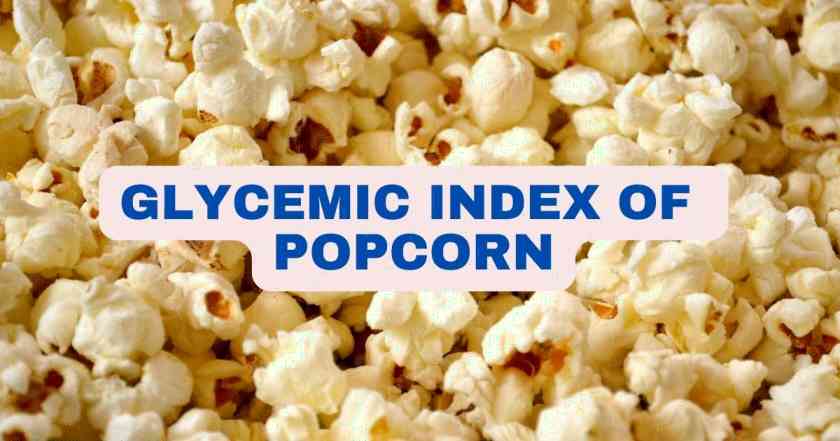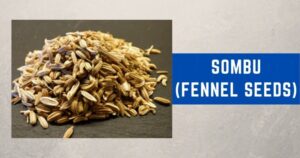Glycemic Index of Popcorn
What is the GI Index of Popcorn?
- Popcorn GI Index is 54.
Popcorn generally has a low glycemic index, making it a favorable snack option for individuals seeking to manage their blood sugar levels. Its high fiber content and potential for portion control contribute to its blood sugar-friendly characteristics. By selecting healthier preparation methods, limiting added toppings, and practicing portion control, individuals can enjoy the nutritional benefits of popcorn while supporting blood sugar control and overall health. As with any dietary choice, it is important to consider individual variability and consult with healthcare professionals for personalized recommendations.

Popcorn
Popcorn is a popular and beloved snack enjoyed by many. As individuals strive to make healthier dietary choices, understanding the glycemic index (GI) of popcorn becomes important for blood sugar management. In this article, we will delve into the glycemic index of popcorn and explore its implications for controlling blood sugar levels.
Popcorn and Its Composition
Popcorn is a type of corn kernel that, when heated, expands and pops, resulting in a light and fluffy snack. It is commonly consumed as a snack at movie theaters, parties, or while watching television. Popcorn is naturally low in fat and calories and contains fiber, making it a relatively healthy snack option.
The Glycemic Index and Its Significance
The glycemic index is a scale that ranks carbohydrate-containing foods based on how quickly they raise blood sugar levels compared to a reference food, usually glucose or white bread. Foods with a high glycemic index (above 70) are rapidly digested and cause a quick increase in blood sugar levels. Foods with a low glycemic index (below 55) are digested more slowly, resulting in a more gradual release of glucose into the bloodstream.
Popcorn GI Index
The glycemic index of popcorn can vary depending on various factors, including the specific type of corn, method of preparation, and serving size. The popcorn GI index is 54. It is worth noting that popcorn primarily consists of starch, a complex carbohydrate that takes longer to digest compared to simple carbohydrates. This slower digestion process suggests that popcorn generally has a low glycemic index.
Impact of Processing and Preparation
The method of preparation can influence the glycemic index of popcorn. Air-popped popcorn without added fats or sweeteners is likely to have a lower glycemic index compared to popcorn prepared with oils, butter, or sugary coatings. Adding fats or sweeteners can increase the total calorie and carbohydrate content of popcorn, potentially affecting its glycemic response.
Fiber Content and Blood Sugar Control
Popcorn is a good source of dietary fiber. Fiber plays a vital role in slowing down the digestion and absorption of carbohydrates, which can help regulate blood sugar levels. The fiber content of popcorn contributes to its potential to have a lower glycemic index and a more favorable impact on blood sugar control compared to other carbohydrate-rich snacks.
Serving Size and Portion Control
While popcorn may have a low glycemic index, portion control is essential for managing blood sugar levels. It is important to consume popcorn in moderation and be mindful of serving sizes. Popcorn can be a satisfying and filling snack, but excessive consumption can lead to overconsumption of calories and carbohydrates, which can impact blood sugar levels.
Flavorings and Toppings
Popcorn can be enjoyed plain or seasoned with various flavorings and toppings. It is crucial to consider the impact of added ingredients on blood sugar levels. Sweet flavorings, such as caramel or sugary coatings, can increase the carbohydrate content and potentially raise the glycemic index of popcorn. Opting for savory seasonings or using spices and herbs in moderation can enhance the flavor without significantly affecting blood sugar levels.
Individual Variability and Glycemic Response
Individual responses to popcorn and other foods can vary. Factors such as metabolism, overall diet composition, and personal health conditions can influence blood sugar response. It is recommended to monitor blood sugar levels after consuming popcorn to assess individual glycemic response and make appropriate dietary adjustments.
Popcorn as Part of a Balanced Diet
When consumed in moderation and as part of a balanced diet, popcorn can be a healthy snack option for individuals looking to manage their blood sugar levels. Its low glycemic index, combined with its high fiber content, makes it a favorable choice compared to many other snack foods.
Popcorn and Nutritional Benefits
Beyond its glycemic index, popcorn offers additional nutritional benefits. It is a whole grain and a good source of vitamins, minerals, and antioxidants. Popcorn is also naturally gluten-free, making it suitable for individuals with gluten sensitivities or those following a gluten-free diet.
Making Healthier Popcorn Choices
To maximize the health benefits of popcorn and its impact on blood sugar control, here are some tips for making healthier popcorn choices:
- Air-popped popcorn: Choose air-popped popcorn as the primary method of preparation to avoid the use of added fats or oils.
- Homemade popcorn: Prepare popcorn at home using whole kernels rather than pre-packaged microwave popcorn, as the latter often contains added fats, artificial flavors, and high levels of sodium.
- Limit added toppings: Minimize the use of butter, oils, salt, and sugary coatings when flavoring popcorn. Instead, opt for healthier seasonings like herbs, spices, nutritional yeast, or small amounts of grated Parmesan cheese.
- Watch portion sizes: Be mindful of portion sizes and avoid excessive consumption. Stick to recommended serving sizes and avoid mindless snacking.
- Combine with protein and fiber: Pair popcorn with a source of protein or fiber, such as nuts, seeds, or a small serving of lean protein, to further slow down the digestion and absorption of carbohydrates.
Considerations for Individuals with Diabetes
For individuals with diabetes, monitoring carbohydrate intake and blood sugar levels is crucial. While popcorn can be a suitable snack choice due to its low glycemic index, it is important to factor it into the overall carbohydrate count for a meal or snack. Working with a healthcare professional or registered dietitian can provide personalized guidance on incorporating popcorn into a diabetes management plan.








